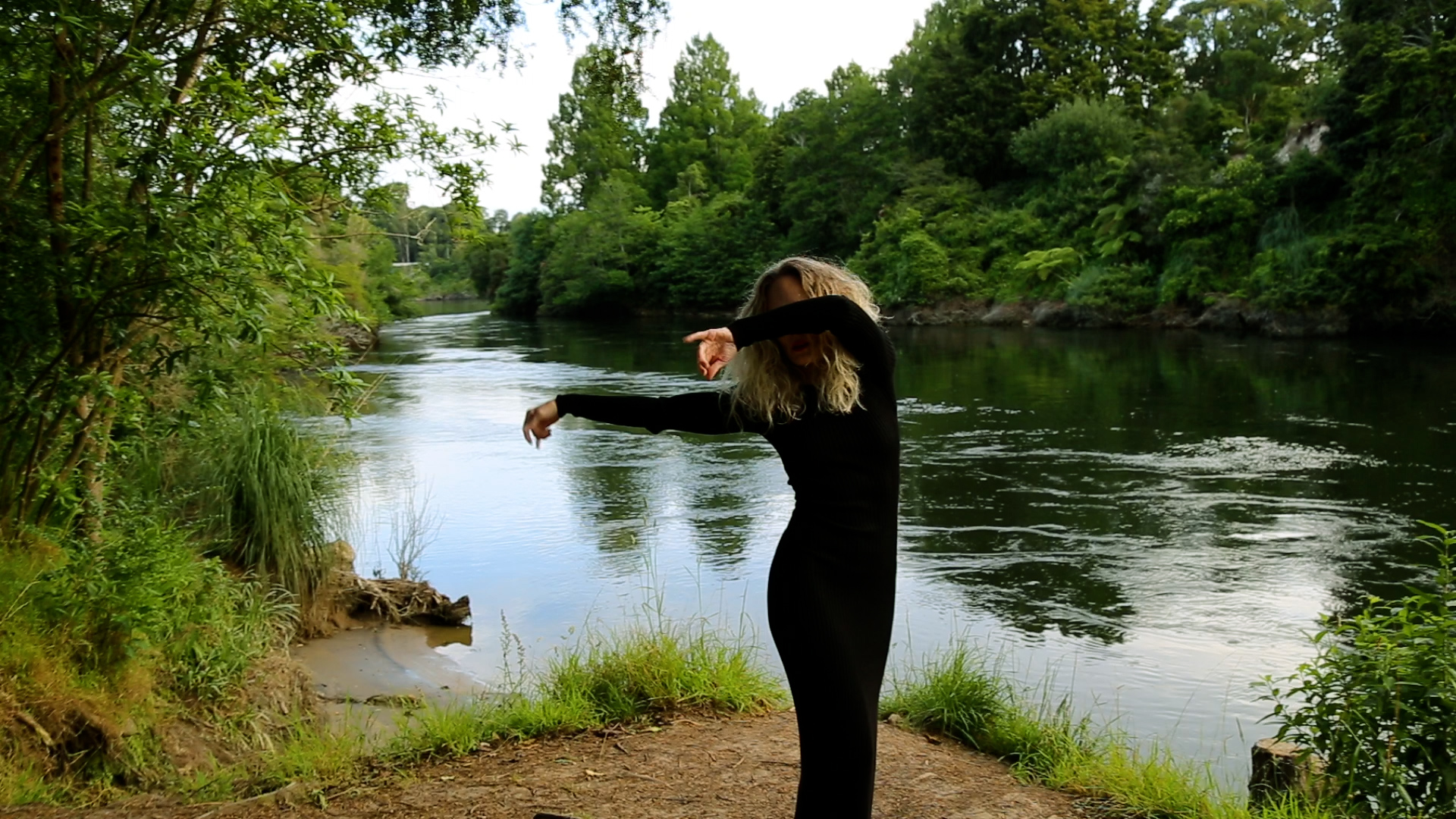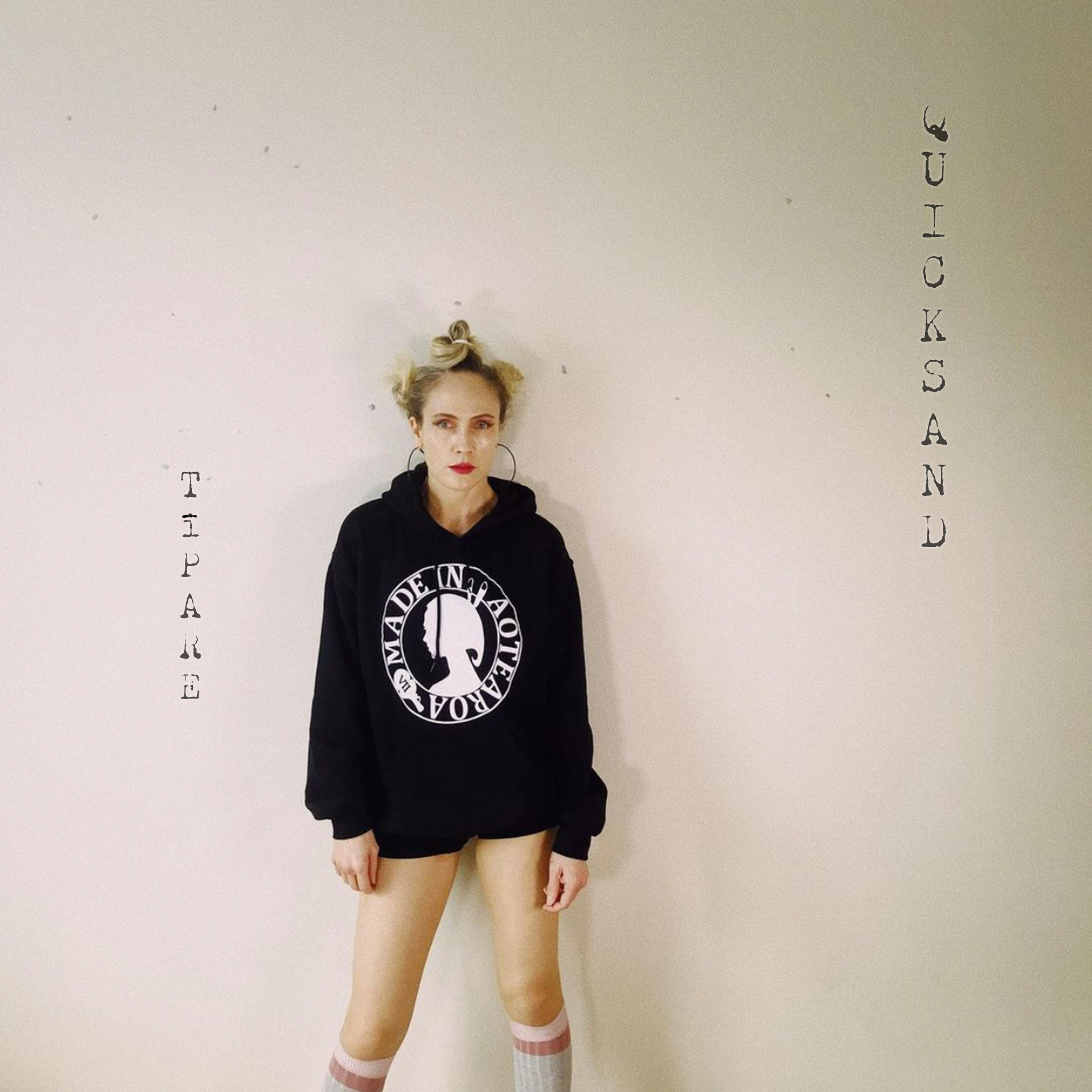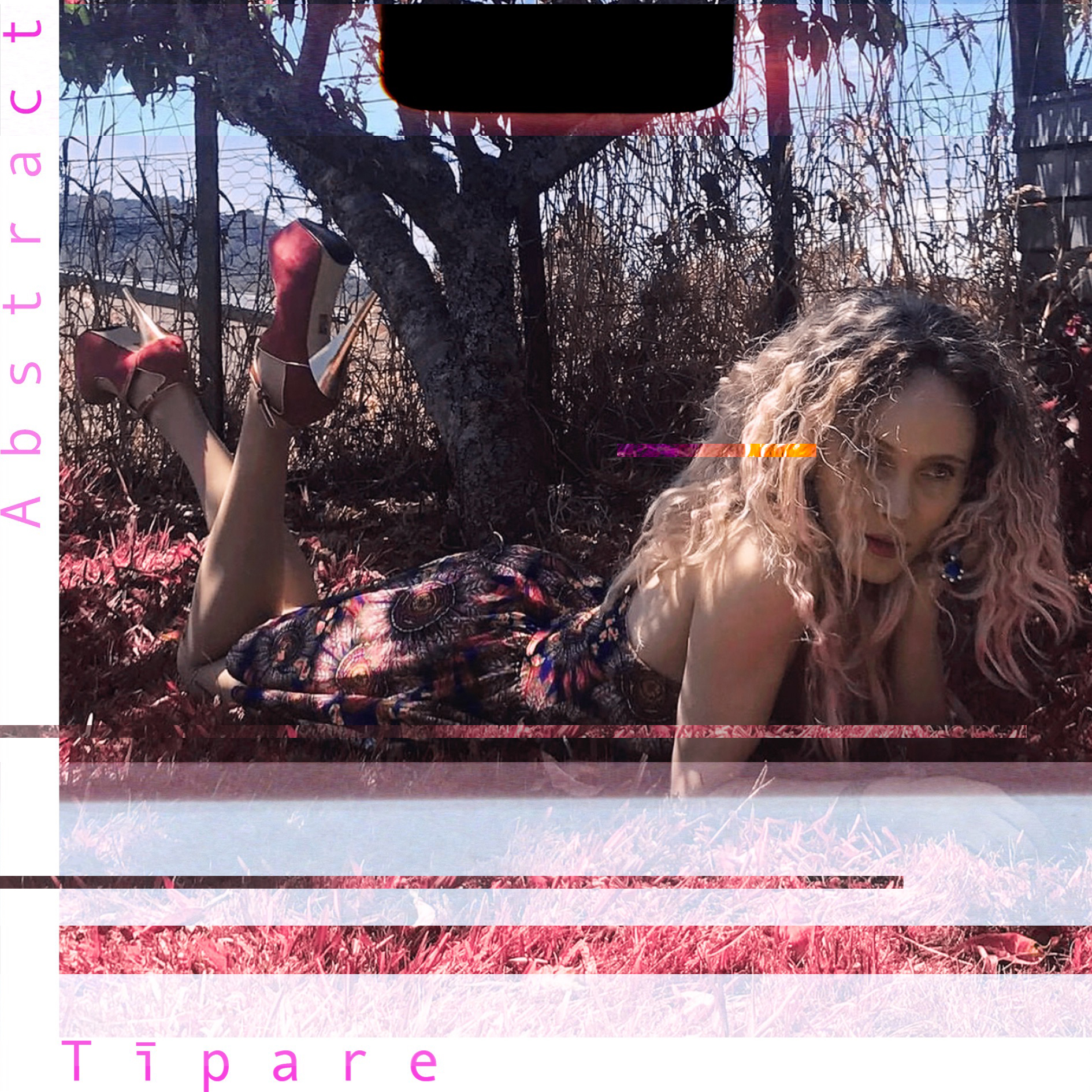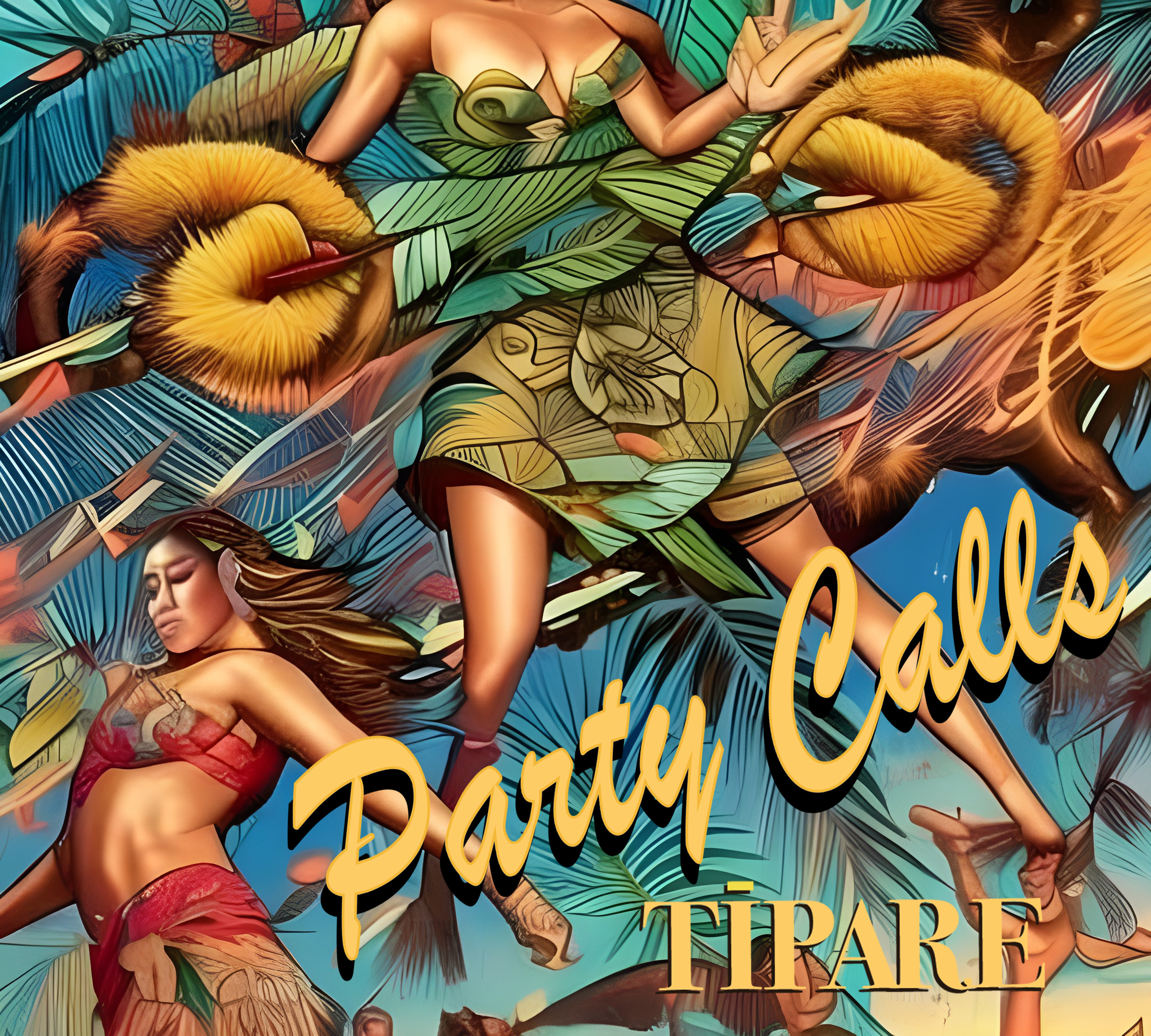Music

Maōri artist TĪPARE is no stranger to the music industry. Having grown up with a musician father and a mother in the music industry, it’s been a strong presence in her life from a young age. “I was raised in multiple places – from the Hawksberry River to Aria in the King Country, Sydney, Los Angeles, before landing in New York. When I was little, I slept in my father’s guitar case at shows and watched my [modelling] mother be photographed on days off. She was beautiful and I was obsessed with her wardrobe. My father was deep and seeped me in the sounds of musical legends.”
A storyteller who has crafted a career as a multidisciplinary artist, activist, director, and producer, whether she is telling her stories through music, visual arts, fashion or documentary – TĪPARE skilfully weaves together the knowledge she has collected from her life experiences and funnels it into her art.
TĪPARE’S father Chris Piper, was in Australian band The Mangrove Boogie Kings – their popularity penned in a song by country legend Slim Dusty. Her mother, Linda Piper, worked at Schubert Sound Systems, a live sound equipment supplier and rehearsal facility in Hollywood, where she worked for over a decade, exposing TĪPARE to an array of musicians behind the scenes such as The Eagles, Michael McDonald, Fleetwood Mac, New Edition and Snoop Dogg among many others. As a teen TĪPARE was immersed in West Coast beats culture, soaking up acts like Pharcyde, Digital Underground, A Tribe Called Quest, Tupac and Wu Tang Clan at local clubs. This exposure to diversity of sound is played out in her eclectic sonic tastes.
TĪPARE continued her musical and artistic journey by heading across to New York at 17 on her own into an exciting music scene, finding herself regularly at iconic Giant Steps and SOB’s club gigs, and swept away in the vibrant art and dance music scene before finding herself in a job that gave her a sense of stability. “In my early 20s, I spent 2 years as a Production Assistant touring every State in America with Steely Dan. I was really close with the band and crew and in retrospect being under their wing and listening to those live shows every night is a major part of who I am also.”
Even though much of her upbringing was overseas, as well as many of her early musical influences, she has always maintained enduring whānau roots and connections in Aotearoa – where she returned to live in her 20s straight back into the arms of her hapū and iwi. “I’m Māori through and through on the inside… on the outside, its a little hard for people to recognise (laughs). But I’m used to being comfortable in the uncomfortable.”
Tipare’s latest musical project ‘Stellar, he wai’ is an ode to her Māori roots, incorporating traditional style waiata (song) front and centre, with elements of eclectic musical scoring supporting the endeavour.
View Short Film Here: STELLAR, HE WAI

Listen Here: SPOTIFY
Following on from her single ‘Abstract’, artist Tīpare releases ‘B-Side’ ‘Quicksand’.
Taking her cue from when singles were commonly released on vinyl with an A-side and a B-side, this new track was written in her homeland area of Aria in Te Nehenehenui and showcases her diversity of musical taste.
“I was living back in my rohe surrounded by the hills of my people and I remember having this distinct sense about the depth of indigenous love. This powerful feeling that no one should ever underestimate the intensity of historical love. It felt like a film in my head.
Tīpare says she always knew she wanted piano on the track, so sent a close friend an acapella recording of the song, which he sent back a recording with exactly what she wanted.
“He’s an African American and Native pianist, and it felt like, from that union, I had a responsibility to make something that respected all of us. I spent many nights and days uncovering the additional soundscape I wanted.”
Being influenced by spacial-driven producers like James Blake and Frank Ocean, where the “wairua lives in each sound,” Tīpare worked once again entrusted award-winning engineer Neil Baldock with the mix.
“I’m very grateful for how Neil handled the mix with such insight and grace. He is a huge part of bringing my imagination to life in musical form.”
As with ‘Abstract’, the artist wrote, arranged, performed, recorded and produced ‘Quicksand’ – something that has been hugely important to her.
Tīpare is a wahine clearly paving her own path, creating music that feels both nostalgic and contemporary – going from a club in 70s Los Angeles, to a 2000s Bloc party in New York – or a whare in Aotearoa. Fueled with stories to tell and the skills to create, Tīpare is an artist to watch.

Multi-media artist Tīpare’s new single ‘Abstract’ signifies a new era for the wahine, who has written, arranged, performed, recorded, and produced the new track.
A disco-inspired, beats-driven song ‘Abstract’ displays the artist’s love of and affinity for 80s style production with its simplicity in communication form. A storyteller who has crafted a career as a multidisciplinary artist, director, activist and producer – Tīpare skillfully weaves together knowledge she has collected from her life experiences and funnels it into her art.
“Ultimately, it’s called ‘Abstract’ because I really didn’t think I was going to catch feelings for someone that I thought was going to be so different from me – but sitting in the back of my mind, with the sound, was that era [70s-80s]. A lot of contradictory art and sound was created that crossed cultural and disciplinary forms. Video was just coming into being, hip hop was being created, and the art scene was burgeoning with street and pop culture combining.”
Tīpare’s previous singles ‘Backbiters’ and ‘My Decision’ were both produced by well-known Aotearoa musician/producer Laughton Kora and New York producer Tiklah.
Throughout the process, she relied heavily on their expertise, but this time, she decided she wanted to do it herself.
“It was confronting technically, but rewarding emotionally,” she says. “I flew to Melbourne to do a crash course in Ableton, so I could take control of the sounds I wanted to hear and be responsible for the risks in producing them.”
By self-producing, she was also able to choose her own vocal takes, something that has been important to her. “Sometimes I want to keep the mistakes. I’m not perfect, and I’m vulnerable, and in this day and age I felt I needed to be honest about that.”
Once happy with the tracks, they were mixed by award-winning engineer Neil Baldock, and mastered by Los Angeles-based Gene the Machine at Oasis.
Listen here: SPOTIFY

Artist Tīpare releases single ‘Party Calls’ after historic Black Ferns Women’s Rugby World Cup win. “I wrote and recorded the song last year in lockdown after thinking, I wish the world would treat all wāhine and girls like world champion rugby players, where we can throw ourselves passionately into our work, make mistakes publicly along the way, and still be supported. And when the girls win…everyone’s happy! And then, it happened!”
The song was originally slated to be released the following year, but Tīpare knew the timing around this one was too important to miss. “I really wanted to live this one out in real time alongside everyone else. As artists you want to offer what you can to kaupapa that effect all of us, and this was my way of showing how much the celebrations have meant.”
The song is a co-production between the artist and Simon Holloway, with Tīpare’s trusted dream team of Neil Baldock mixing the track and ‘Gene the Machine’ at Oasis in Hollywood mastering. Respected visual artist ‘na_cuz’ jumped on board to create the cover art. “He’s encapsulated the vibe of song, the energy of the time, and the wairua of what we’ve experienced. My little team pulled together a fun video edit of the Black Ferns, themselves, whānau and friends as well. A lot of people worked to help me get this out earlier. It’s been a cool exercise in mahi tahi (collaboration).
‘Party Calls’ is an upbeat dance song ready for the clubs, the cars, and the caravans.
“We’ve all had a tough last few years, I want to keep these good vibes we’ve just experienced going all through summer. The party’s calling us!”
‘Party Calls’ is out on all music platforms.
In 2014 TĪPARE released singles ‘Backbiters’ and ‘My Decision’, produced by Aotearoa artist Laughton Kora, and New York producer Tiklah. More recently, she decided to take a different approach to her music, by upskilling so that she could self-produce, write, arrange and perform her own music.
“It was confronting technically, but rewarding emotionally,” says TĪPARE. “I flew to Melbourne to do a crash course in Ableton, so I could take control of the sounds I wanted to hear and be responsible for the risks in producing them. I live for artistic challenge.”
TĪPARE says that by self-producing she was able to choose her own vocal takes, which she felt was important and found rewarding. “Sometimes I want to keep the mistakes. I’m not perfect, and I’m vulnerable, and in this day and age I felt I needed to be honest about that.”
Once happy with her tracks, they were mixed by award-winning engineer Neil Baldock, and mastered by Los Angeles-based Gene the Machine at Oasis. The final results being her 2022 singles ‘Abstract’ – a disco-era-inspired tune with the beats being the main driver, and ‘Quicksand’ – a song about unescapable love, reflecting the artist’s connectivity to indigenous understandings, the first two releases from her upcoming EP.
‘Abstract’ reflects one of the aspects of kare a-roto (emotions) and ipo (affection/love) that she explores in the music she’s working on. It shows her love of disco era sexiness and affinity for 80s style production with its simplicity in communication form. “It’s called ‘‘Abstract’ because to me that era was grounded and experimental at the same time. A lot of contradictory art and sound was created that crossed cultural and disciplinary forms. Video was just coming into being, hip hop was being created, and the art scene was burgeoning with street and pop culture combining. Those things were sitting in the back of my mind. But ultimately, it’s called Abstract because I really didn’t think I was going to catch feelings for someone who on paper seemed so different from me.”
‘Quicksand’ is considered a ‘B-Side’ single – with TĪPARE taking her cue from when singles were commonly released on vinyl. This single showcases her diversity of musical taste. Written in her homeland area of Aria in Te Nehenehenui. “I was living back in my rohe surrounded by the hills of my people and I remember having this distinct sense about the depth of indigenous love. This powerful feeling that no one should ever underestimate the intensity of historical love. It felt like a film in my head.”
TĪPARE is a wahine who clearly paves her own path, creating music that feels both nostalgic and contemporary – going from a club in 70s Los Angeles, to a 2000s Bloc party in New York – or a whare in Aotearoa. Fuelled with stories to tell and the skills to create, TĪPARE is an artist to watch.
Follow TĪPARE:
